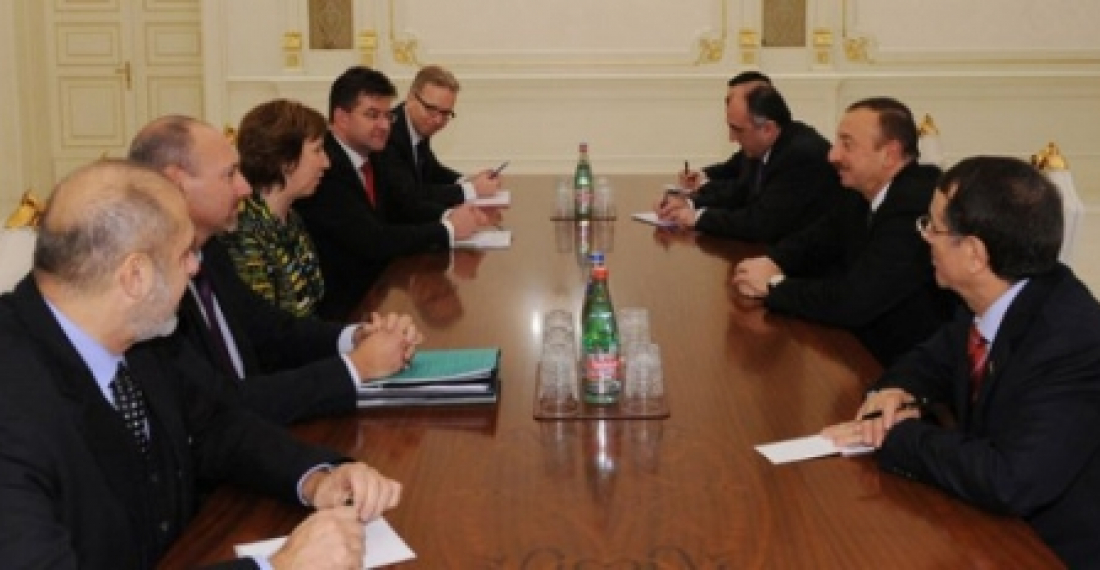The peaceful settlement of the Nagorno-Karabakh conflict was one of the issues discussed yesterday in a meeting between the President of Azerbaijan Ilham Aliev and the European Union Foreign and Security Policy High Representative, Catherine Ashton. Ashton is currently on a visit to the region. The two sides also discussed issues related to bilateral co-operation, including energy.
Earlier Catherine Ashton referred to the Karabaklh conflict in an interview with APA News Agency. The EU Foreign Policy chief said that the EU was "very concerned about the lack of progress in resolving the Nagorno-Karabakh conflict, and would like to see how we could play a more active and helpful role, in full support of the OSCE Minsk Group. I have appointed a new EU Special Representative, Philippe Lefort, to take this work forward. A solution to the conflict would unlock huge potential for the entire region and would in particular boost regional co-operation. Conflict resolution and reconciliation are key values on which the EU itself is based, and which we believe can inspire a renewed effort in the South Caucasus region as well. We will of course discuss the further development of our bilateral and multilateral cooperation in the context of the Eastern Partnership".
Ashton added that "the Minsk Group has the mandate to mediate between the parties to the conflict. Our intention is to see whether we could do more to support its work, and to help build confidence between the two sides, and more generally act in support of the Minsk Group’s work. There is much at stake in this conflict, and much to be gained if it was resolved, for the people of the region, and also for the EU. We are very worried therefore about the rise in tensions and the increase in incidents, and would like to see how we could help reverse the trend".
Ashton will today visit Georgia and later Armenia, before proceeding to Moscow to attend a meeting of the EU-Russia Council .
source: commonspace.eu (with agencies)
photo: Baroness Ashton and her delegation with Azerbaijan President Ilham Aliev in Baku on 15 November 2011. (Picture courtesy of the Press Service of the President of Azerbaijan)







